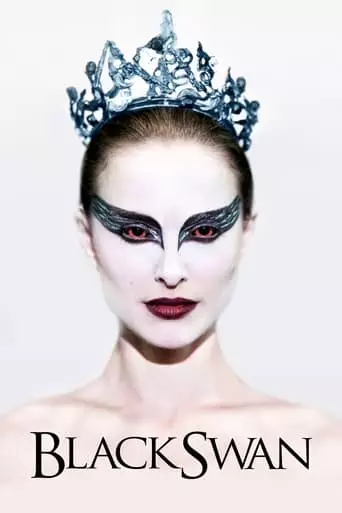
Black Swan (2010) Watch Online Free
A journey through the psyche of a young ballerina whose starring role as the duplicitous swan queen turns out to be a part for which she becomes frighteningly perfect.
Black Swan, directed by Darren Aronofsky, is a psychological thriller that delves into the intense pressures of professional ballet and the psychological toll it takes on its performers. The story follows Nina Sayers (Natalie Portman), a young and talented dancer with the New York City Ballet, who is vying for the coveted lead role in a production of Swan Lake. The role demands that she embody both the innocent and fragile White Swan (Odette) and the sensual, darker Black Swan (Odile). Nina excels in portraying the White Swan but struggles with the seductive nature of the Black Swan, leading her artistic director, Thomas Leroy (Vincent Cassel), to suggest she embrace her darker side.
Nina’s obsession with perfection, combined with her overbearing mother (Barbara Hershey) and her rivalry with a fellow dancer, Lily (Mila Kunis), leads to a descent into madness. As Nina’s mental state deteriorates, she becomes unable to distinguish between reality and hallucination, culminating in a tragic transformation during her final performance. The film ends ambiguously, with Nina achieving artistic perfection at the cost of her sanity and life.
Themes and Analysis
Black Swan explores themes of duality, identity, and the destructive pursuit of perfection. The central motif of duality is embodied in the roles of the White Swan and Black Swan. Nina’s journey reflects the struggle to reconcile her innocence and sensuality, as well as her repressed desires and her quest for artistic perfection. The film’s psychological intensity is heightened by the use of mirrors, which symbolize Nina’s fractured identity and her deteriorating sense of self.
The film is also a meditation on the destructive nature of obsession. Nina’s obsessive drive to embody the Black Swan leads her to self-destructive behavior, from self-harm to hallucinations and a breakdown of boundaries between herself and others. The theme of repression is also explored, particularly through Nina’s sexual awakening, which is catalyzed by her interactions with Lily and her artistic director.
The transformation into the Black Swan symbolizes Nina’s embrace of her shadow self, a concept drawn from Jungian psychology. This transformation is depicted both physically (through CGI effects of feathers sprouting from Nina’s body) and psychologically, as Nina becomes consumed by the darker aspects of her personality.
Impact and Influence
Black Swan had a significant impact on both audiences and critics, with its intense psychological drama and haunting visuals. The film raised discussions about the toll that artistic perfectionism can take on an individual’s mental health. It also opened up conversations about the portrayal of female identity, sexuality, and the pressures faced by women in the performing arts.
The film’s success was not just in its storytelling but in its immersive style, using tight framing, unsettling sound design, and a haunting score to place the audience inside Nina’s deteriorating mind. The blending of reality and hallucination creates a disorienting experience, forcing viewers to question what is real and what is imagined.
After watching Black Swan, you will likely feel a mix of awe, unease, and contemplation. The film’s intense psychological drama, combined with its haunting visuals and disturbing themes, leaves a lasting impression. You may feel a sense of discomfort as you reflect on the price of perfection and the fragility of the human mind. The tragic ending may evoke a sense of sorrow and empathy for Nina, whose quest for artistic greatness ultimately leads to her undoing.
The film also prompts introspection about the nature of identity, repression, and the cost of pursuing one’s dreams at any cost. It’s a movie that will linger in your thoughts long after the credits roll, forcing you to grapple with its dark themes and ambiguous conclusions
